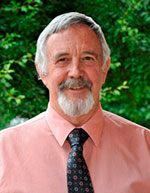A Word from the Executive Director
reSolve in 2019–20
We are delighted that funding for the reSolve: Maths by Inquiry project will continue to June 2020. As a result, we will be able to focus some of our existing resources, develop a few new ones and continue to work with and through the reSolve Champions.
Our plans for 2019 and 2020 are to:
- Consolidate Special Topics and Classroom Resources into one set of resources that we will call Teaching Resources. This will make it easier to search for curriculum links and incorporate the full range of reSolve resources when planning your teaching and learning program.
- Develop a learning progression focused on variation as a key concept in statistical reasoning. The research into how student understanding develops in statistics and probability makes it clear that variation is foundational to other ideas. We already have resources such as Shoes (Foundation), Licorice Lines (Year 3), Bottle Flipping (the Year 3 component of Mathematical Inquiry into Authentic Problems), Probability (Year 6), Hot Streaks (Year 9), and How Risky is Life (part of the Special Topic Mathematical Modelling). We will show how existing reSolve resources such as these help students learn statistical ideas, and create some new resources where necessary.
- Develop a learning progression focused on fractions (F to 6 plus) moving into proportional reasoning (6 minus to Year 10). Over the past two years the most searched-for term on the reSolve website has been ‘fractions’, and we are conscious that we have only a small number of resources that build students’ understanding of fractions, decimals, ratios and percentages. This will be a substantial undertaking involving writing a number of new resources.
- Make two of the professional learning modules more interactive by moving them into an online format. We have had extremely positive feedback about the content of the modules, but we know that it is difficult to find a concentrated block of time to present modules to colleagues. We hope that moving them online will provide the flexibility for teachers to use parts of them individually and to use collegial time to discuss how they can use reSolve or other resources to address the issues identified.
- Continue to support the reSolve Champions. We will maintain the online platform and keep in touch to help them promote a culture of excellence in their schools and beyond. If you do not have a Champion in your school, you can find your nearest Champion from the interactive map on the reSolve website.
- Recruit and train a small number of new Champions in areas of need. We have relatively few Champions in rural and remote areas, or in schools in low SES areas. Yet these are the very schools that we want to support most strongly and actively, and often those who feel most isolated. If you are in such a situation and want to become a Champion, or if you know of someone who would make a great Champion, please let us know.
All of us who have worked on the reSolve project, including the extended project team and the Champions, are thrilled with our collective achievements in a very short time. We hope that we can continue to support high-quality maths teaching and learning at least to the middle of 2020!
Thanks to reSolve staff
As the project moves into its next phase we sadly say farewell to some of the people who have helped to make it such a success.
Kaye Stacey and Peter Sullivan have shaped the project and taken responsibility for significant components of reSolve. Similarly, Will Morony was part of reSolve from the beginning and designed and helped implement the Champions program. Kaye, Peter and Will have, for many years, been three of the most influential voices in mathematics education in Australia and internationally. We will miss the wise advice and knowledge of mathematics education that they shared with us on a day-to-day basis but will certainly seek their expertise into the future.
Amy Lee has been our Administration Coordinator since the start of the project. Not only has she managed all of the administration work, but she has also taken responsibility for much of the website liaison, uploading of resources and work with Education Services Australia to link the resources through Scootle.
Tim Sealey has been our Project Director during 2017 and 2018. He has looked after contracts, finances, timelines and much of the liaison with trial schools, as well as providing strategic advice around project directions.
Andrea McDonough has worked closely with Peter on the professional resources; Lucy Bates and Meredith Begg have worked with Kaye on the special topics; Valerie Barker and Anna Alberti have worked with us at the Academy to help edit and write the classroom resources.
A project the scale of reSolve does not belong to one person, nor even one organisation. It has been a complete team effort from the start and we are extremely grateful for the commitment and professionalism of everyone in the team.
 Dr Steve Thornton
Dr Steve Thornton
Executive Director of reSolve: Maths by Inquiry
mbi@science.org.au
02 6201 9490
 Dr Steve Thornton
Dr Steve Thornton